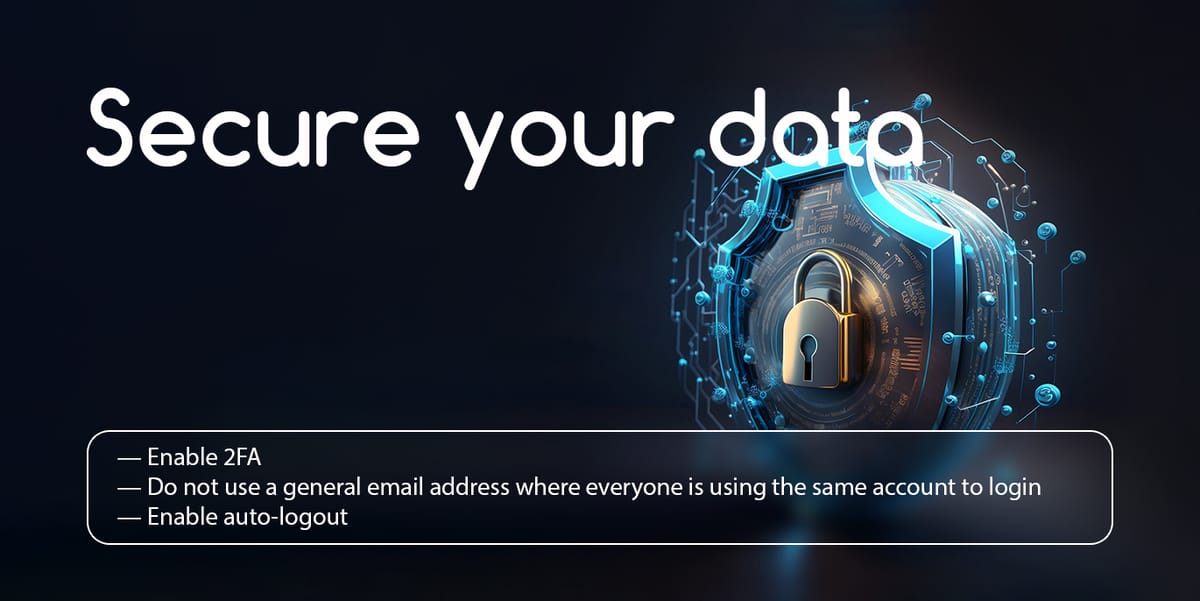Safeguarding Your Study: Essential Security Best Practices
Data security in research is vital. Key practices: Two-Factor Authentication, individual email addresses, private login details, strong passwords, auto-logout, limited access, and essential Personal Identifiable Information collection.

In the ever-evolving digital landscape, the security of your study's data is paramount. As researchers and scholars, we understand the critical nature of protecting sensitive information and ensuring the integrity of our work. In this post, we'll explore why adhering to security best practices is not just a recommendation, but a necessity, and provide practical advice for fortifying your study's digital defence.
1. Enable Two-Factor Authentication (2FA) 🔐
Enabling 2FA on your account adds an extra layer of security beyond just a password. This means even if someone gets hold of your password, they still need a second form of identification to access your account.
2FA is not mandatory by default, but we strongly suggest you using it. For details on how to do so, please check [Add 2FA link: https://learn.avicennaresearch.com/reference/study-setup-and-deployment/profile-settings#two-factor-authentication-]
2. Use Individual Email Addresses 📧
Avoid using a general email address shared by multiple users for logging in. Personal email addresses reduce the risk of unauthorized access and improve accountability.
3. Keep Your Login Credentials Private 🤫
Never share your username and password. This basic principle is fundamental to maintaining the security of your personal and study's data.
4. Create Strong Passwords 💪
Use complex passwords that are difficult to guess. A strong password includes a mix of letters, numbers, and special characters and is crucial for protecting your accounts.
XXX5. Enable Auto-Logout 🕒
Auto-logout is a safety net for those moments when you forget to log out. It automatically signs you out after a period of inactivity, safeguarding your account from unauthorized access.
XXXX
6. Limit Access to Your Study 🔒
Give access only to those who need it. This minimizes the risk of data breaches. Excitingly, we are on the cusp of releasing finer permission management features to enhance this aspect further! XXXXXXX Link to R&P here, and rewrite this item and ask researchers to use R&P XXXXXXXX
7. Collect Only Necessary Personal Identifiable Information (PII) 🛑
If your study doesn't require certain PII, don't collect it. Limiting the amount of collected PII reduces the risk and impact of potential data breaches.
Embracing these security best practices is not just about protecting data; it's about safeguarding the integrity of your research and the privacy of all involved. Stay tuned for more updates and enhancements to make your study's security even more robust. Remember, in the digital world, vigilance is the key to safety! 💡🔐

Comments ()